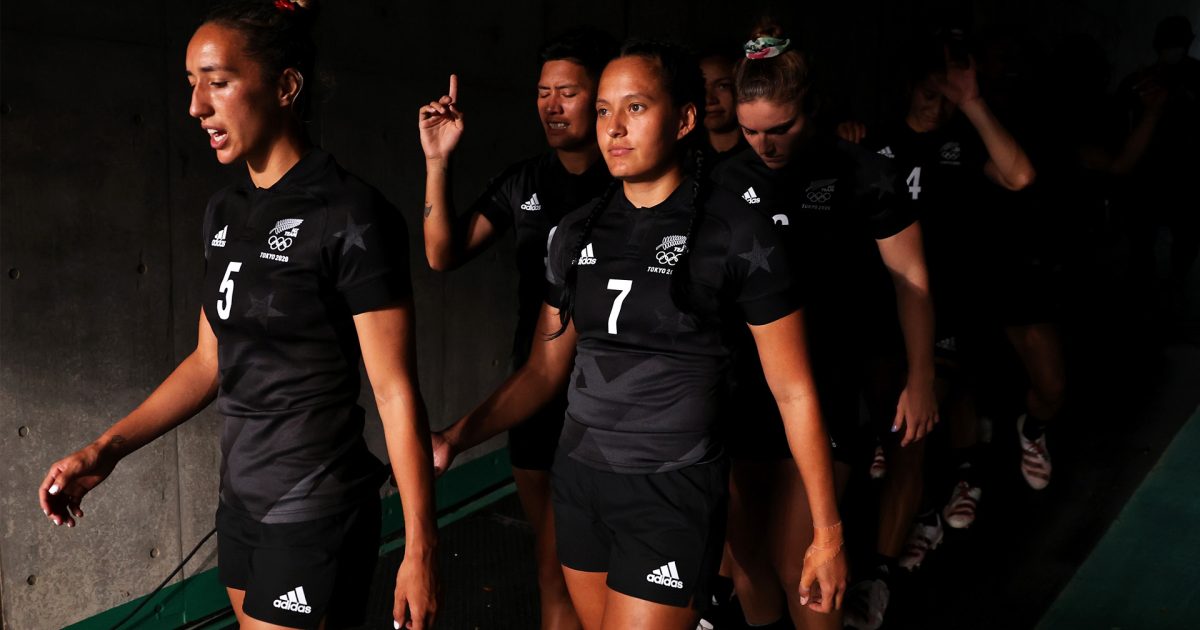Tyla Nathan-Wong's full circle journey back to 15s was bittersweet

The Black Ferns wouldn’t have won the World Cup without their five sevens “superstars”.
Sarah Hirini, Ruby Tui, Portia Woodman, Theresa Fitzpatrick, and Stacey Fluhler scored 21 of the Black Ferns 44 tries at the tournament with Fluhler, Tui, and Fitzpatrick the only three try scorers in the 25-24 victory over France in the semi-final.
Tyla Nathan-Wong (Ngapuhi) was a conspicuous absence from the sevens “superstars” cohort for the Ferns.
Nathan-Wong has played 52 of the 64 tournaments the Black Ferns Sevens have contested since 2012 winning six World Series titles, the World Cup in 2013 and 2018, and Olympic gold in Tokyo in 2021.
The halfback has scored 1179 points in the World Series and her 472 conversions are 153 ahead of the next-best player, Canadian Ghislaine Landry.
Nathan-Wong was in contention to join her Sevens sisters at the World Cup, but her fifteens test debut proved to be bittersweet. On August 20 Australia was slayed 52-5 in Christchurch but Nathan-Wong was the victim of an unfortunate injury.
“My debut was a full circle moment,” Nathan-Wong told RugbyPass.
“Sevens wasn’t really around when I started so the dream was to play fifteens. I don’t feel much pressure when I play Sevens. I’m used to big crowds. In Christchurch I was so nervous.
“The highlight apart from winning the game was doing the haka and having all those childhood emotions flow through me. My whole family and fiancé who’d literally arrived from London that day, were there to support me.
“Unfortunately, I got a concussion but it’s still a very special moment.”
The concussion ruled her out of the World Cup Sevens in Cape Town in September, but Nathan-Wong could see something special was simmering in the Black Ferns. She was especially impressed by Director of Rugby Wayne Smith.
“He’s the kind of coach that doesn’t beat around the bush. He’ll call you out on the training field with good intentions. He always wants better from you. You’ll take it and then have a good yarn, cracking up afterward.
“The two teams have different styles but there is an underbelly of whanau and connection with each other which is very enjoyable and essential.”
While the Black Ferns went on to win Rugby World Cup 2021 in November, Nathan-Wong was one of the few veterans left in the Black Ferns Sevens at the start of the 2022/23 World Series in Dubai.
When World Cup and Commonwealth Games champions Australia won Dubai, it suggested a powershift in sevens was permanent, Nathan-Wong disagrees.
“Aussie had gotten the better of us a few times but when you look at it, they were tight games. One missed tackle, one dropped pass, five or seven points that type of thing,” she explained.
“Watching the girls fall short at the World Cup Sevens was tough and then it happened again in Dubai, and it was like ‘oh man’ but there was this energy and belief about the young girls, and I knew if we could continue to grow and grow, we could get the win in Cape Town.”
The Black Ferns made the final in Cape Town. Two tries and three conversions by Nathan-Wong saw Australia thrashed 31-14.
In January the Black Ferns won the Hamilton and Sydney Sevens to surge to a dozen-point lead in the World Series standings.
“It was cool to see the younger generation step up when they had to. It’s a great blend of youth and experience at the moment.
“We got a good break over the holidays, refreshed, and reconnected with family which is important in this team. When the fifteens girls came back, we continued to grow and grow.
“There is good in-house competition, girls putting their hands up, pushing each other to get better, but we can’t settle. We must train hard and reset for Vancouver.
“I was 17 when I was first in the team and now you’ve got Jorja Miller who’s 19, Jazmin Hotham, and others who are going to be here for the next several years. When I started, I was nurtured by the likes of Huriana Manuel and Linda Itunu so it’s cool, to be in the position to be able to give back.”
“Bindi” Itunu is something of a legend and even hugged the King of England against royal protocol.
“I was there when she did it too. It’s the funniest thing I’ve ever seen. We were doing a workout in the gym, and Charles had to wipe his face because he got sweat all over him.
“Bindi is the kindest, loving, caring person but an absolute beast on the field who will put you on your butt if you’re stupid enough to run at her.”
The fifth leg of the World Sevens Series is in Vancouver from March 3 to 5.









































































